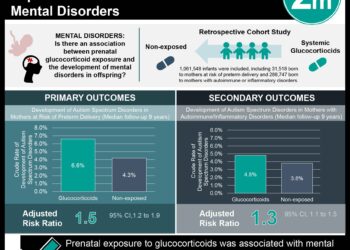Spiritual wellbeing is protective against depression in young people
1. This systematic review found that spiritual wellbeing was protective against depression in young people aged 10 to 24 years.
2. However, negative religious coping was associated with greater depressive symptoms over time and personal importance of religion was not associated with depressive symptoms in this population.
Evidence Rating Level: 1 (Excellent)
Spirituality and religion can play an important role in the psychosocial development of young people. Studies have suggested that spirituality can have a positive effect on mental health in this population. Meanwhile, other research has noted that those with religious or spiritual struggles may be more susceptible to mental health problems. Given the mixed findings on the effects of spirituality on mental health outcomes in young people, it is necessary to understand this relationship better. This study aimed to review the current evidence on the impact of religion and spirituality on anxiety and depression in young people.
Of 3,706 identified records, 74 (n=45 longitudinal, 29 intervention) studies published between January 1, 2000, and July 21, 2021, were included in the review. Studies that had a mean participant age between 10 and 24 years, used diagnostic criteria to assess anxiety and depression, and evaluated one of the following: the association between religion or spirituality and depression or anxiety, the moderating impact of religiosity and spirituality on risk factors for depression or anxiety, or the impact of spiritual or religious interventions on depression or anxiety, were included. Studies were excluded if they used religious service attendance as the only indicator of religiosity. The study was carried out according to PRISMA guidelines. The primary outcome was the association between religiosity and spirituality and depression or anxiety.
The results demonstrated that spiritual wellbeing was protective against the development of depression in young people. Furthermore, interventions for spiritual wellbeing were associated with reductions in symptoms of depression and anxiety. However, several studies found that negative religious coping was associated with an increased risk of depression and anxiety, while religious salience was not related to depressive symptoms. The review was limited by the small number of studies conducted in lower-middle-income countries, which impacted the generalizability of the findings. Nonetheless, the present study found that religiosity and spirituality can exhibit both positive and negative effects on mental health in young people.
Click to read the study in BMC Psychiatry
Image: PD
©2023 2 Minute Medicine, Inc. All rights reserved. No works may be reproduced without expressed written consent from 2 Minute Medicine, Inc. Inquire about licensing here. No article should be construed as medical advice and is not intended as such by the authors or by 2 Minute Medicine, Inc.






